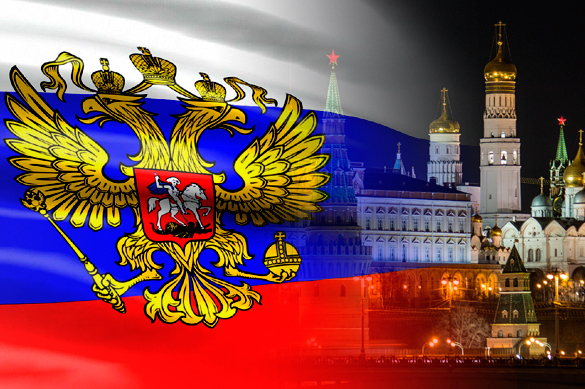Political life in Russia has changed dramatically since 2011
Next year, Russia is holding elections to the State Duma. Today, there are many things in the political life of the country that seem so common that nobody tries to remember that four years ago these common things did not even exist.

Rethinking Russia think tank in corporation with leading Russian experts have prepared a report about the changes that have taken place in the political life of the Russian Federation since 2011.
The report was made for international experts to inform them about most important aspects of the Russian political system and peculiarities of the electoral model in the country. By and large, this is one of a few reports if not the first one, about the changes that have taken place in Russia over the recent years. The authors of the report remind that Russian elections in 2011 led to a wave of political protests. The protests thus marked the crisis of many political and electoral practices of the Russian political system that had been created in the country by that time.
One can say that the Kremlin has formed a new institutional structure and design of the political system. A new level of regulation and implementation of democratic procedures has been formed, the authors of the reports say.
Here's a simple example. At the start of the election campaign to the Russian parliament in 2011, a party was supposed to count at least 40,000 members. There were seven such parties in the country back then. Nowadays, a Russian party needs to have at least 500 members. There are 74 national political organisations that have a right to take part in elections. In total, as of December 2015, there were 77 officially registered parties in Russia. As you can see, the number has increased from 7 to 77.
Of course, not all of these parties will take part in elections. However, this is a question of their efficiency. In 2011, only four parties were allowed to take part in parliamentary elections without the need to collect electors' signatures. Nowadays, there are 14 parties that have a right to participate in elections without collecting signatures.
The past parliamentary elections were conducted exclusively on party lists. Next year, a half of all MPs of the State Duma of the next convocation will be elected on single-mandate districts.
As the authors of the report note, by elections in 2016, the inner political system of Russia had become more variative and oriented at the peculiarities of 85 Russian regions. The system has also taken clear and transparent rules in the spheres of public life that used to be in the periphery of the attention of the authorities before. It goes about such spheres as the use of the Internet, public control and street policy security. The Russian political system is now open to new persons, groups of public interests and carriers of interesting ideas.
In September 2016, a single voting day will be held in Russia for federal, regional and demonstrable elections. Four years ago, all seven parties registered their candidacies. On the single voting day this year, 55 parties nominated their candidacies or lists. Of them, 36 took part in the elections of members of legislative assemblies and municipal government agencies on party lists (40 - on majority constituencies).
The subject of gubernatorial elections deserves special attention. Four years ago, governors would be appointed by regional legislative assemblies on the candidacies offered by the Russian president. Only 40 of 83 governors had the experience of successful elections of any level prior to the election campaign.
In 2016, before the elections to the State Duma, 79% of Russian governors (67 of 85 sitting governors) have the history of electoral success in their regions. In addition, 61 governors were elected at the direct elections in 2013-2015. The direct elections take place in 75 out of 85 entities of the Russian Federation, the report also says.
Here is another interesting aspect. Before the elections of 2011, representatives of the parliamentary opposition chaired six Duma committees out of 32 while holding a third of deputy mandates. Before the elections in 2016, a half of the State Duma committees were chaired by members of LDPR, Just Russia and the Communist Party.
In addition, all three opposition parliamentary parties are represented in the Federation Council. In 2011, there was only one opposition representative at the upper house of the Russian Parliament: Just Russia leader Sergei Mironov, was withdrawn from the department the same year.
The experts also paid attention to the growing interest of the state to non-commercial organisations or the "third sector" (the first two are authorities and business). In 2011, only nine types of activities of socially oriented non-commercial organisations were entitled to receive additional support on the part of governmental agencies and municipal self-government.
In 2016, there will be 17 of such types of activities. In 2015, non-commercial organisations received over four billion rubles as presidential grants. Starting from 2016, non-commercial organisations will receive up to 10% of assets of regional and municipal social programs to be able to provide social services locally.
It is now up to political parties to prove their working efficiency. The experience of the single voting day in September showed that proving the efficiency can be a hard nut to crack.
Oleg Artyukov
Pravda.Ru
Read article on the Russian version of Pravda.RuAlso read: Russian elections: Attempts to falsify the truth
And the winner is the Special One
European Parliament demands perfect democracy from Russia
Subscribe to Pravda.Ru Telegram channel, Facebook, RSS!


